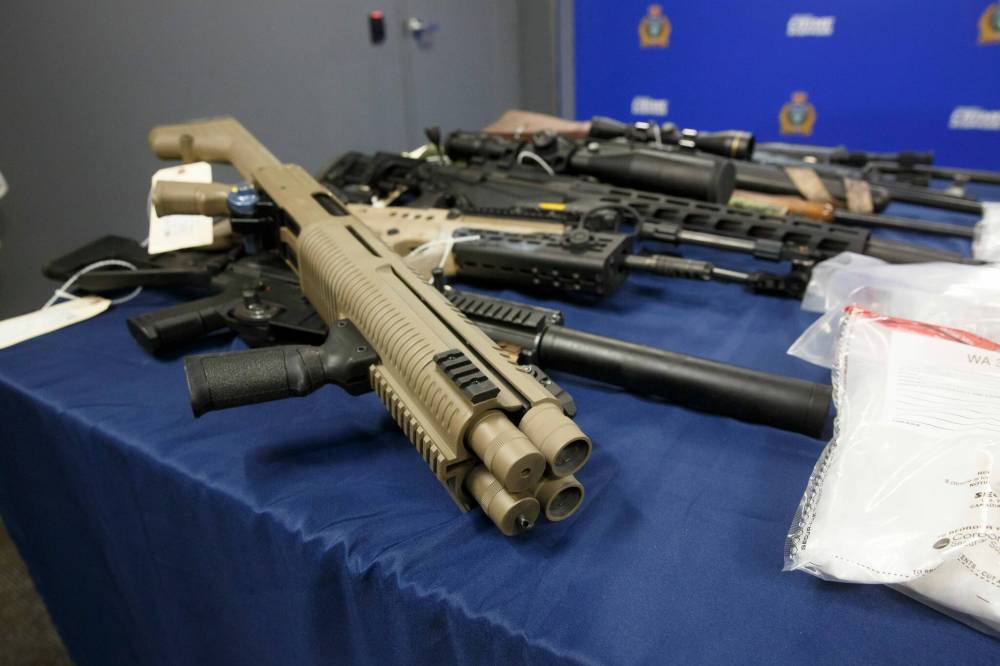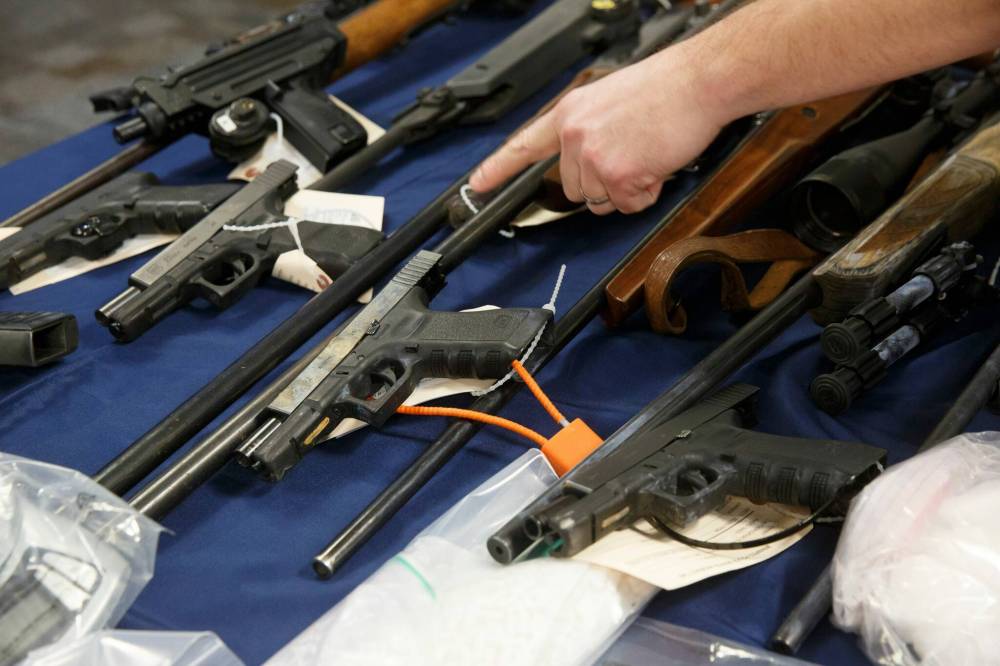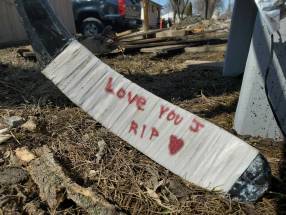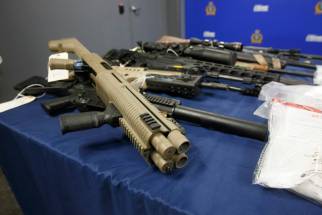New rules unlikely to curtail gun crime
Read this article for free:
or
Already have an account? Log in here »
To continue reading, please subscribe:
Monthly Digital Subscription
$0 for the first 4 weeks*
- Enjoy unlimited reading on winnipegfreepress.com
- Read the E-Edition, our digital replica newspaper
- Access News Break, our award-winning app
- Play interactive puzzles
*No charge for 4 weeks then price increases to the regular rate of $19.00 plus GST every four weeks. Offer available to new and qualified returning subscribers only. Cancel any time.
Monthly Digital Subscription
$4.75/week*
- Enjoy unlimited reading on winnipegfreepress.com
- Read the E-Edition, our digital replica newspaper
- Access News Break, our award-winning app
- Play interactive puzzles
*Billed as $19 plus GST every four weeks. Cancel any time.
To continue reading, please subscribe:
Add Free Press access to your Brandon Sun subscription for only an additional
$1 for the first 4 weeks*
*Your next subscription payment will increase by $1.00 and you will be charged $16.99 plus GST for four weeks. After four weeks, your payment will increase to $23.99 plus GST every four weeks.
Read unlimited articles for free today:
or
Already have an account? Log in here »
Hey there, time traveller!
This article was published 19/05/2022 (1300 days ago), so information in it may no longer be current.
Yes, Winnipeg has a serious problem with crimes involving guns, but the solution will take more than the federal firearms legislation introduced this week.
New regulations that began Wednesday say businesses must keep records of gun inventory and sales. Further, before transferring or selling guns, businesses and individuals are responsible for confirming a recipient’s identity and checking with the registrar that the recipient has a valid gun licence.
Putting the onus on the sellers of guns was a surprise twist for many observers of Bill C-71, which has been hotly discussed since it got royal assent in 2019.

The new system is technically not a resumption of the controversial long-gun registry, which was created by the Liberals in the 1990s and later abolished when the Tories came to power. Under the old system, the firearms registrar kept records of sales and ownership. The new system obliges businesses to keep records, which can only be accessed by police with reasonable grounds and a court warrant.
Public Safety Minister Marco Mendicino introduced the changes by stating it will now be easier for law enforcement to investigate and trace gun crime. His claim is based more on wishful thinking than the on-the-street reality faced by police in cities such as Winnipeg.
It’s true the new identification records of gun purchases could help police prosecute “straw buyers,” the term given to people who purchase guns on behalf of people who can’t legally buy guns and want them for criminal purposes.
But “straw buyers” accounted for relatively few of the 1,300 firearms seized by Winnipeg police in 2021, most of which would have escaped regulation under the new measures introduced by Mr. Mendicino. They were smuggled in from the U.S., or made in private Winnipeg homes using mail-order gun kits and parts transmitted via 3-D printers, or sold by black-market gun dealers who are not about to request a buyer’s identification.
The gun owners who will be subjected to the new layer of bureaucratic regulations are the legal users who want to purchase guns for hunting, sport shooting or as a defence against predators on farms or in bush camps. But these are not the criminals who are shooting people or using illegally obtained weapons to rob other people or businesses.
Winnipeg police know all too well the futility of expecting the new legislation to hinder the prevalence of what police call “crime guns.” This city was the hub of a nine-month gun-trafficking investigation that involved three provinces in 2021. Dubbed Operation Phoenix, it successfully dismantled a gun-trafficking ring, ending with 12 arrests and the seizures of about 40 guns. Suffice to say, none of the traffickers obtained gun licences before supplying weapons to criminals.

The new gun legislation might help in a small way, but the larger problem of gun crime requires a combined approach by government, police and the justice system.
Police can continue periodic campaigns that offer a no-questions-asked amnesty for turning in guns, and other programs in which police buy back guns. Governments can increase border security to stop the flow of black-market guns into Canada from the firearms mecca of the U.S. Also, prosecutors and judges can use the higher end of sentencing recommendations in gun-related crimes as a deterrence.
It’s naive to think gun crime will be substantially impacted by legislating that gun sellers check identification and keep good records. More pragmatic measures to detect and seize illegal guns will reflect the reality that criminals are more inclined to get their weapons in back alleys than from reputable gun sellers.










